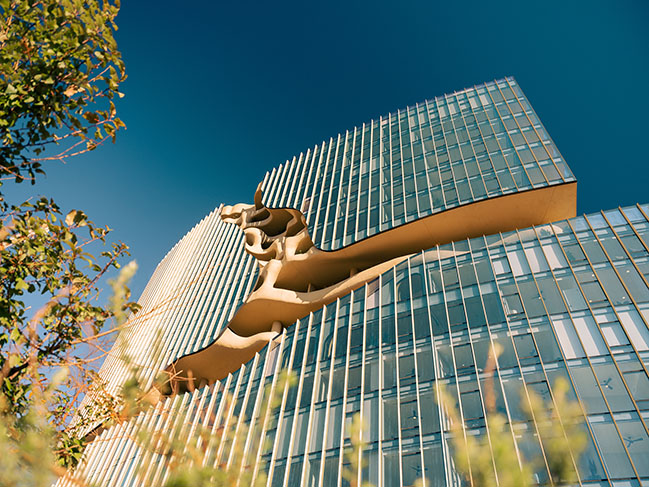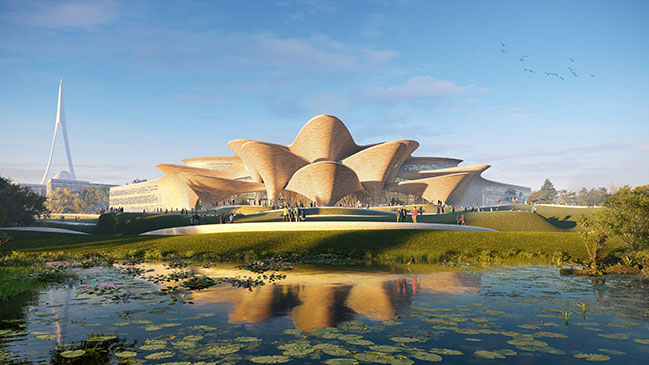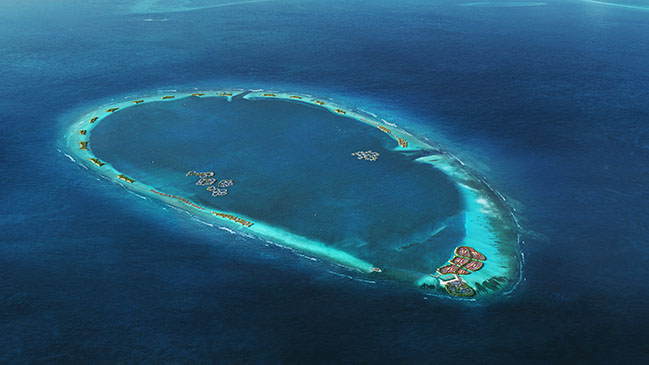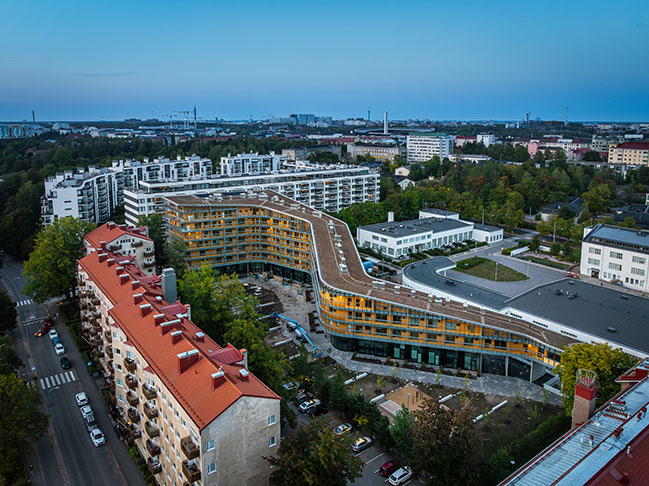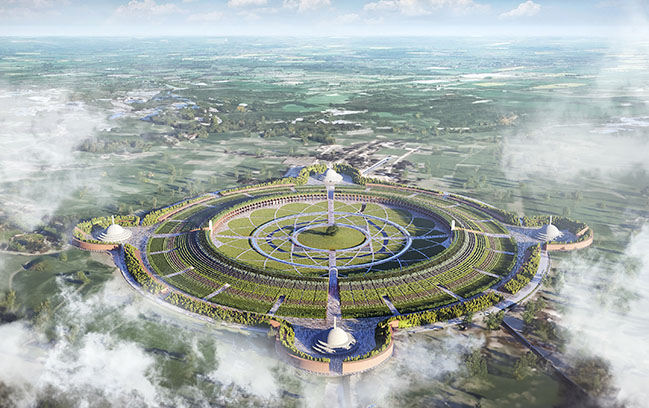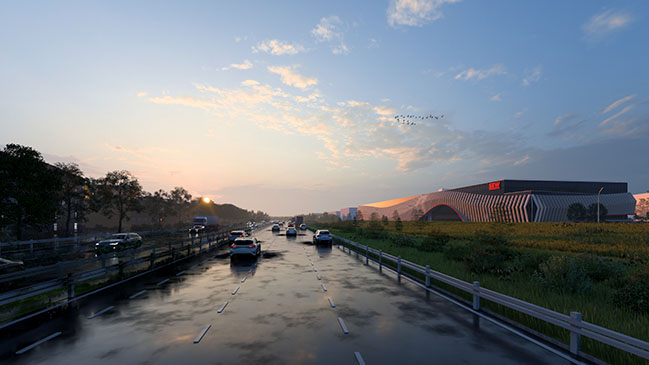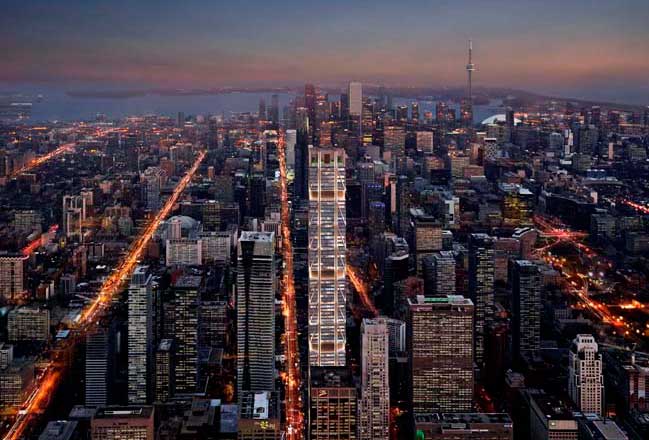10 / 18
2024
The new building is careful in its relationship with the heritage buildings, keeping a respectful distance so that an exciting in-between space emerges where the two meet, with bridges crossing overhead to connect old and new...
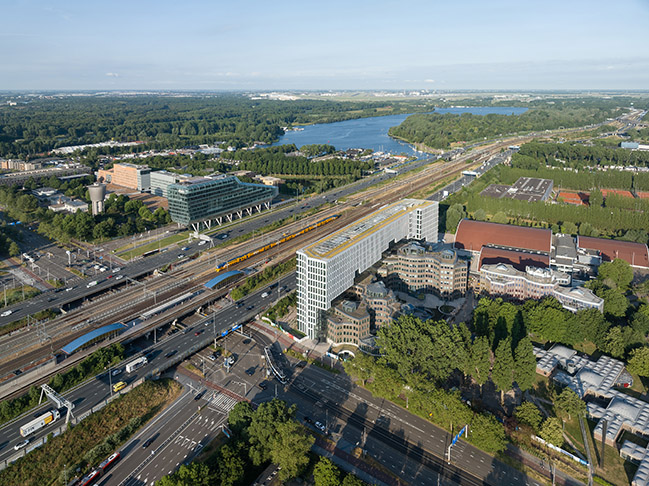
> Faneuil Gardens by MVRDV
> MONACO by MVRDV | Work and Play: new angle on offices in Munich
From the architect: The construction of Tripolis Park, which renovates and transforms one of the last projects completed by the celebrated Dutch modernist architect Aldo van Eyck, is complete. On behalf of developer Flow, MVRDV restored two of the three listed heritage buildings in line with Van Eyck’s original designs and added a 12-storey “landscraper” along the edge of the site to shelter the complex (which includes Van Eyck’s Amsterdam Orphanage next door) from noise and dust generated by the adjacent A10 highway. The new building is careful in its relationship with the heritage buildings, keeping a respectful distance so that an exciting in-between space emerges where the two meet, with bridges crossing overhead to connect old and new.
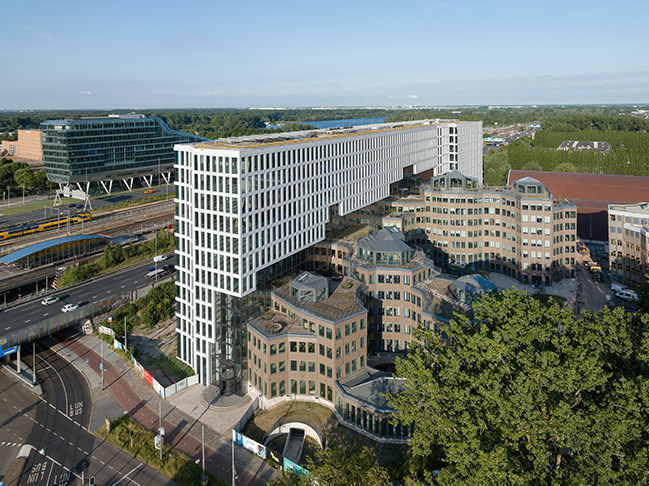
The creation of Tripolis, a trio of idiosyncratic office buildings of 11,000, 8,000, and 6,000 square metres, was inextricably linked to Van Eyck’s masterpiece, the Amsterdam Orphanage. Completed in 1960, the orphanage was one of the most important projects of the Structuralist movement, yet by 1986 it was already threatened with demolition. A successful international campaign was launched to save the orphanage, and the municipality of Amsterdam offered the adjacent land to the developer – on the condition that Aldo and Hannie van Eyck should design the new office complex. In 1994, their new design was completed, and thus Tripolis began its life as the symbolic saviour of the orphanage.
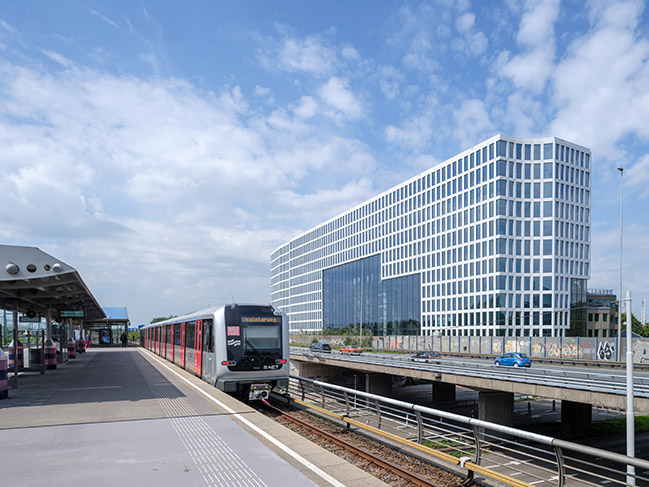
MVRDV’s design makes the next step in this history. The original Tripolis did not prove commercially successful, standing empty for years. Meanwhile an upcoming expansion of the adjacent A10 highway, which includes a new on-ramp right alongside the Tripolis site, threatened to bring increased noise and pollution. Like the orphanage in the 1980s, the Tripolis buildings, in turn, needed an intervention to ensure their future. Following archival research and close collaboration with Van Eyck’s heirs, MVRDV’s design has restored the buildings’ façades not to their original state, but one step better: to Van Eyck’s initial designs. For example, the façades are now fully clad in wood, unlike the cheaper wood and granite combination requested by the Tripolis developer in the 1990s. The building’s multi-coloured window frames are also retained.
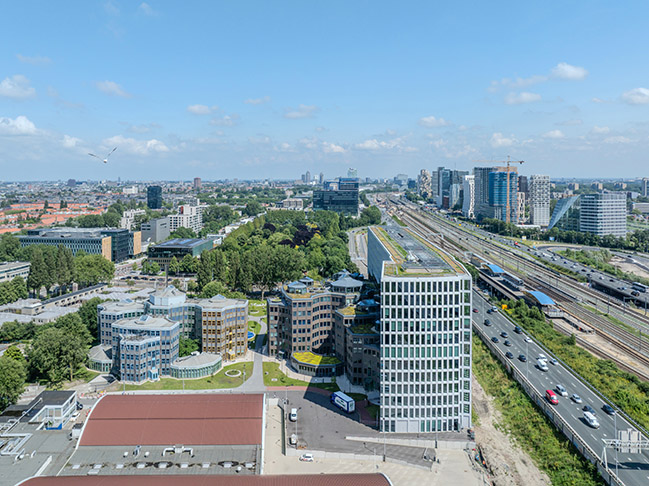
Inside, the renovation keeps characteristic elements such as the staircases and the natural stone floors, but it also adapts the buildings to bring them in line with modern standards, where offices are increasingly seen as spaces for meeting and collaborating. Dividing walls have been removed, so that the building is less compartmentalised, while various interventions make the building more sustainable. The roofs are now used more intensively, with greenery and pavilions that enable interaction between all users of the complex and which can be used for events. Solar panels are also introduced, helping the development achieve BREEAM Outstanding sustainability certification.
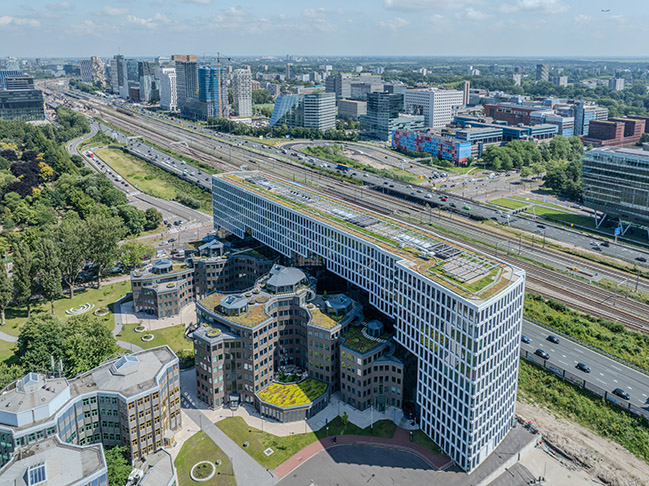
The project isn’t just a renovation, however: a 12-storey landscraper known as “The Window” stands on the edge of the plot, pushed as close as possible to the A10, to form a protective wall between the highway and the rest of the site. A large rectangular window has been cut from the gridded south façade of the 34,000-square-metre office building, offering a view upon the original Tripolis complex to emphasise the project’s heritage aspects. On the other side of the building, the northern façade responds playfully to the Tripolis buildings, indented by an “echo” of their complex shapes. This intervention creates an undulating interior, an exciting, low-noise intermediate space where bridges connect the old and new buildings.
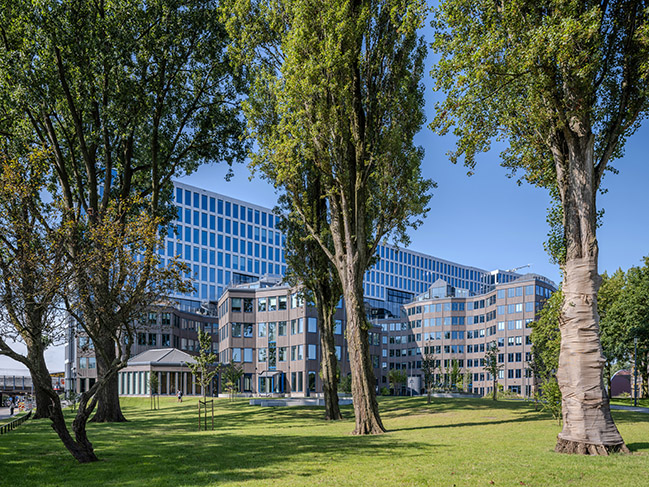
“Demolition of heritage is always the easy option, especially if it is located in a business district dominated by high-rise buildings,” says MVRDV founding partner Winy Maas. “Tripolis Park offers an approach to protecting heritage that at the same time meets people’s expectations for an office today. It combines this with new densification, a continuation of the development at Amsterdam Zuidas, that doesn’t copy Van Eyck’s intention, but creates a new one, like a new layer in time. And it celebrates the in-between which, as Aldo explained to me when I was a student, is one of the main sources of beauty in architecture.”
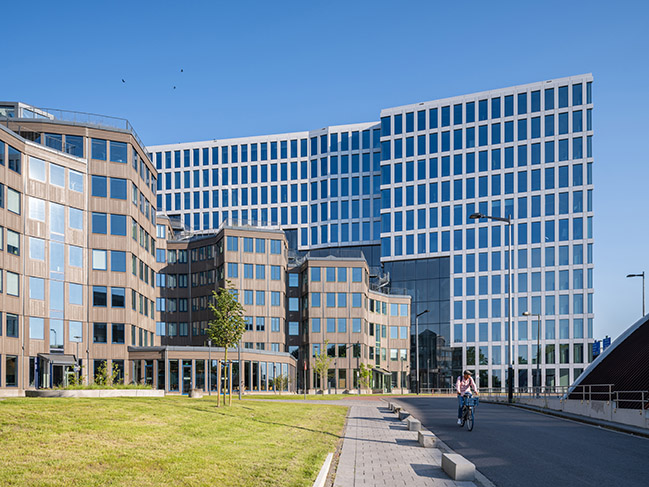
With Tripolis Park, Van Eyck’s monument is re-established within the current office rental market, evident in the fact that it has attracted two prestige tenants in Uber and law firm De Brauw Blackstone Westbroek. In the coming years, work will continue on the third of the original Tripolis buildings. The greening of the site, which will be easily accessible via walking and cycling paths from the other parts of the Zuidas and the nearby metro station, will also continue, forming a park-like campus in which Aldo van Eyck’s buildings – from 1960 and 1994 alike – are sheltered and preserved.
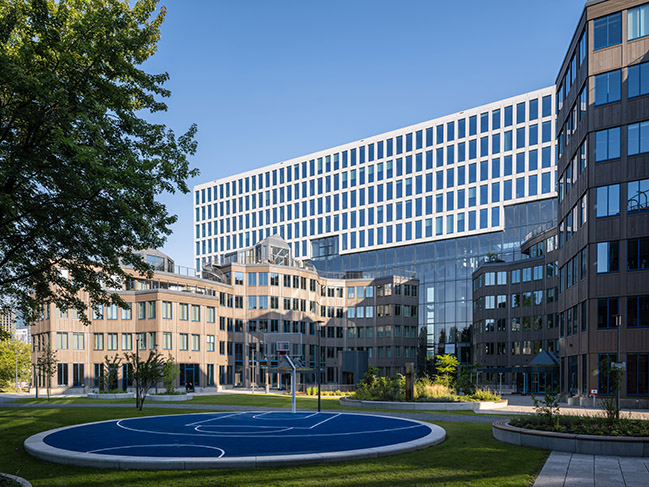
Architect: MVRDV
Client: Flow Development
Location: Amsterdam, The Netherlands
Year: 2018–2023
Size: 61,000m2
Founding Partner in charge: Winy Maas
Director: Gideon Maasland
Associate Design Director: Gijs Rikken
Project Leader: Rik Lambers, Bob de Rijk
Design Team: Steven Anton, Roxana Aron, Guido Boeters, Teodora Cirjan, Joao Viaro Correa,
Guillermo Corella Dekker, Karolina Duda, Cas Esbach, Valentina Fantini, Rico van de Gevel, Piotr
Janus, Nika Koraca, Urszula Kuczma, Claudia Mainardi, Sanne van Manen, Rugile Ropolaite, Irgen
Salianji, Maxime Sauce, Claudia Storelli, Karolina Szóstkiewicz, Laurens Veth, Olesya Vodenicharska,
Mark van Wasbeek, Mariya Badeva, Rebecca Fiorentino, Nefeli Stamatari, Michele Tavola,
Aleksandra Wypiór
Visualisations: Antonio Luca Coco, Luca Piattelli, Kirill Emelianov, Pavlos Ventouris, Francesco Vitale
Co-architect: Powered by EGM
Contractor: G&S Bouw
Project Coordination: Toussaint Project Management
Landscape Architect: Deltavormgroep
Structural Engineer: Van Rossum Raadgevende Ingenieurs
Installations Consultancy: Arcadis
MEP: Bosman Bedrijven
Cost Calculation: BBN
Building Physics & Environmental Advisor: DGMR
Interior Architect: Concrete
Photography: Ossip van Duivenbode
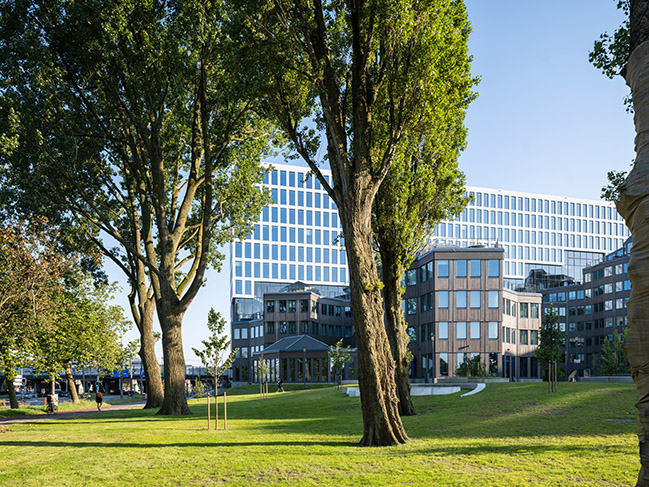
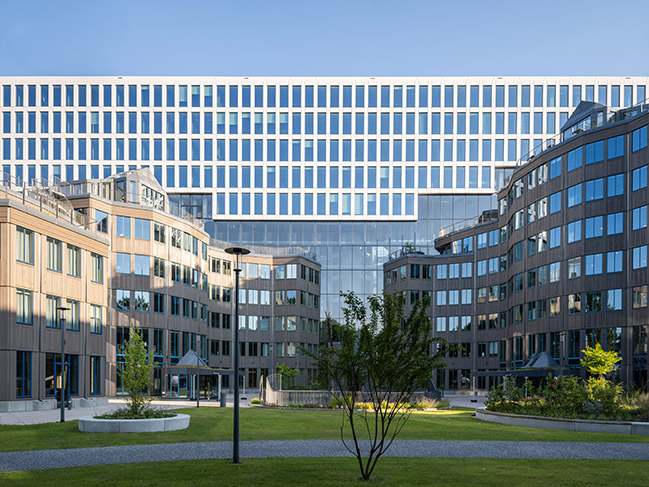
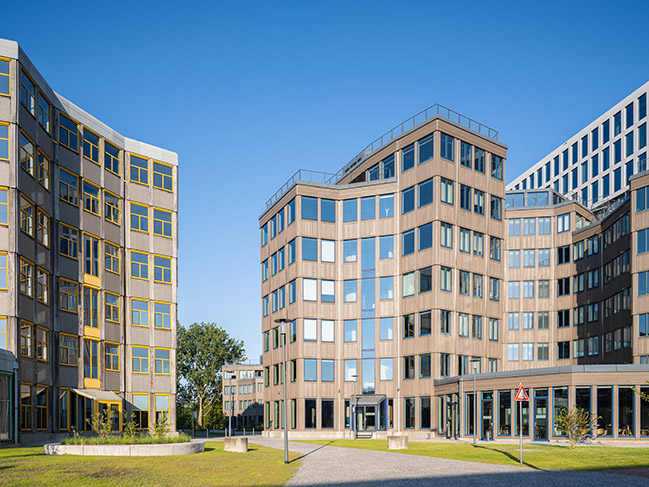
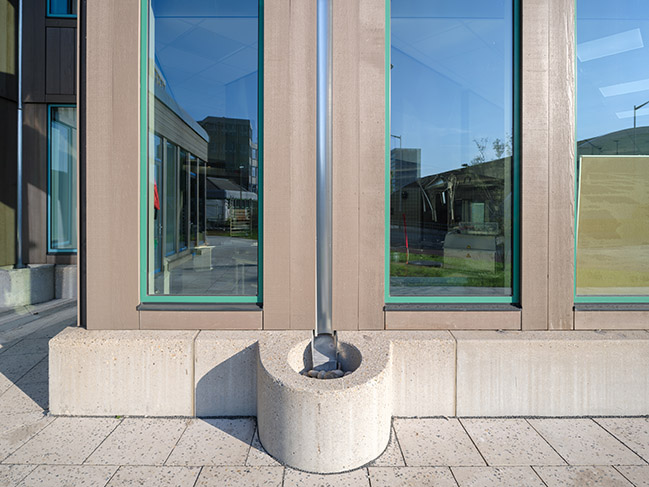
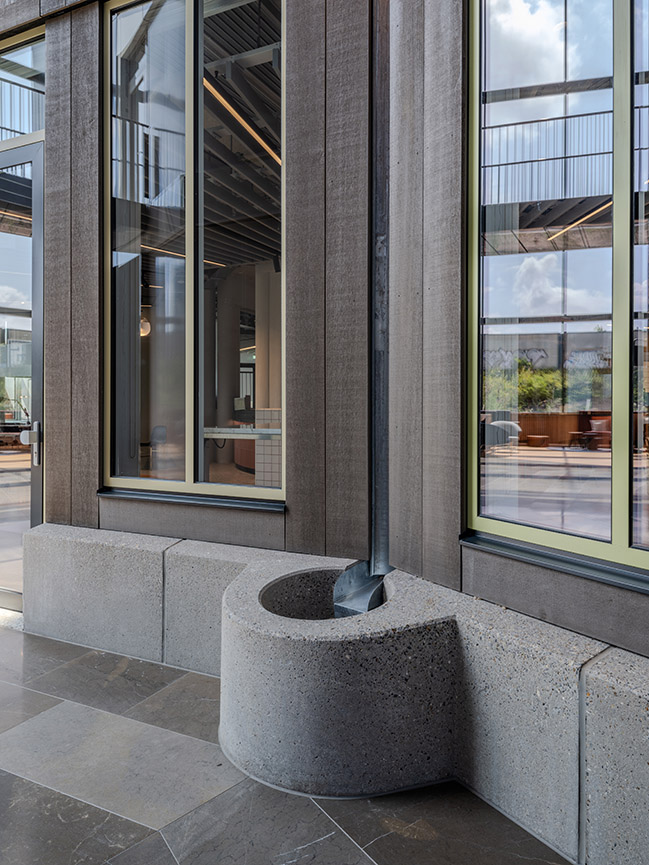
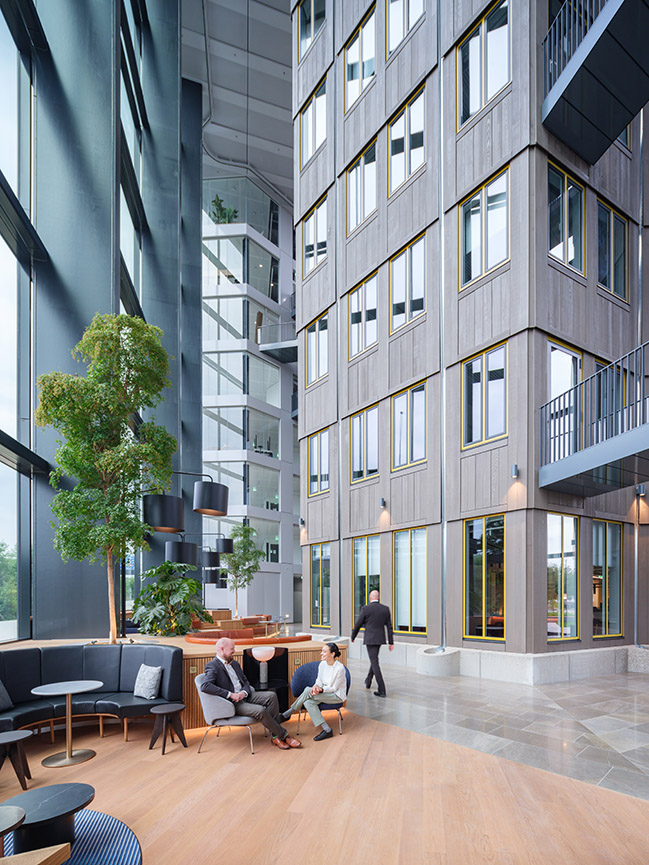
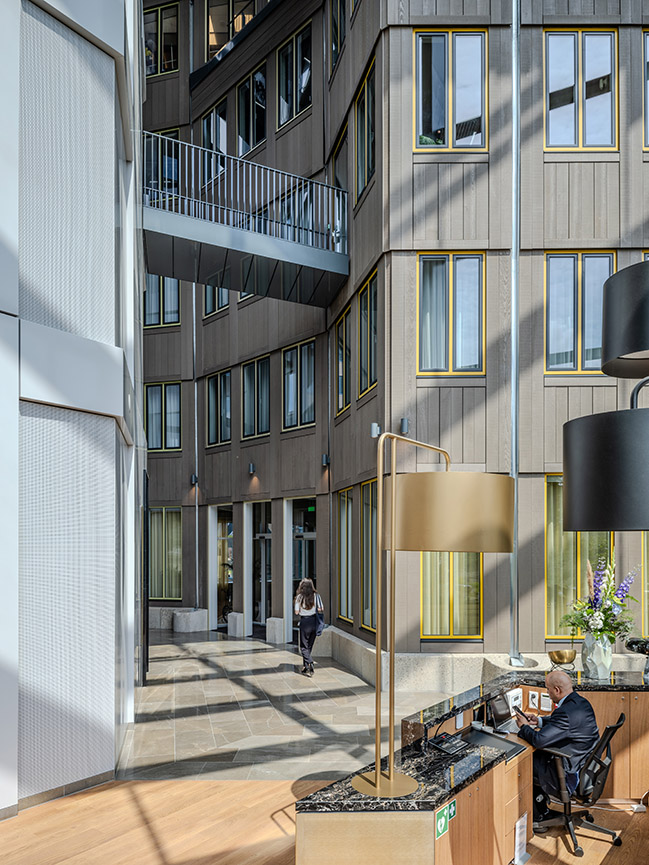
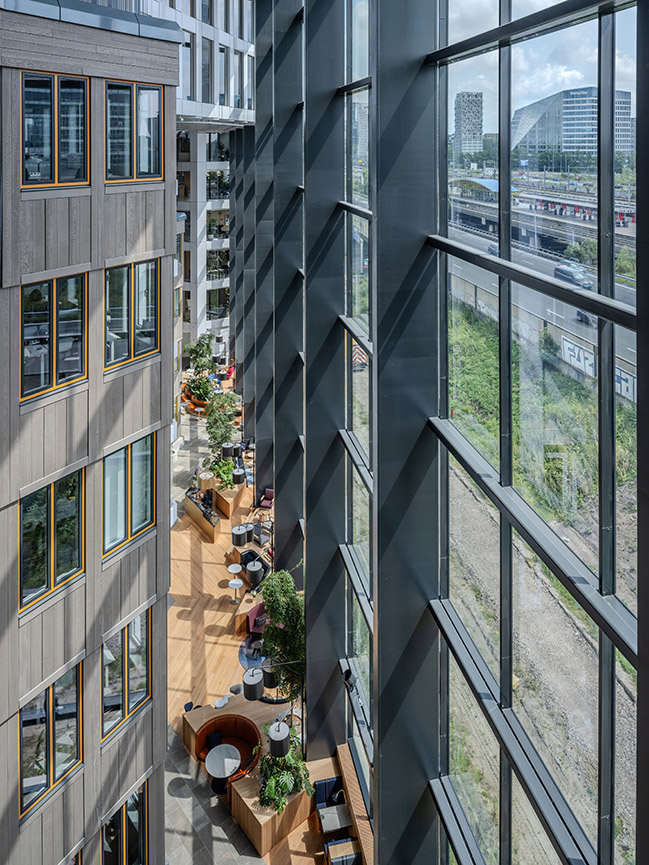
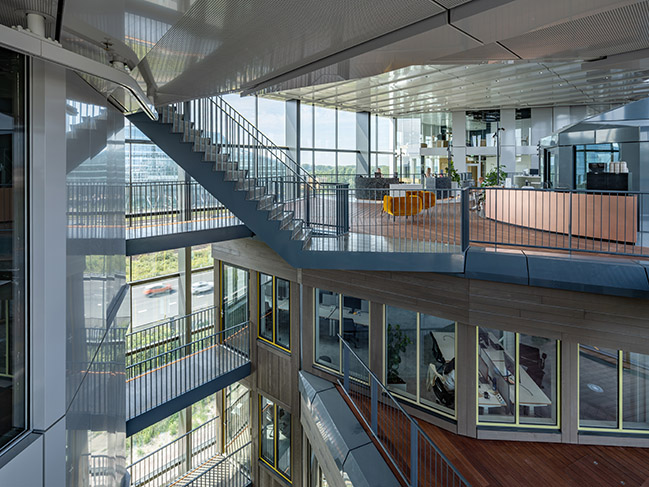
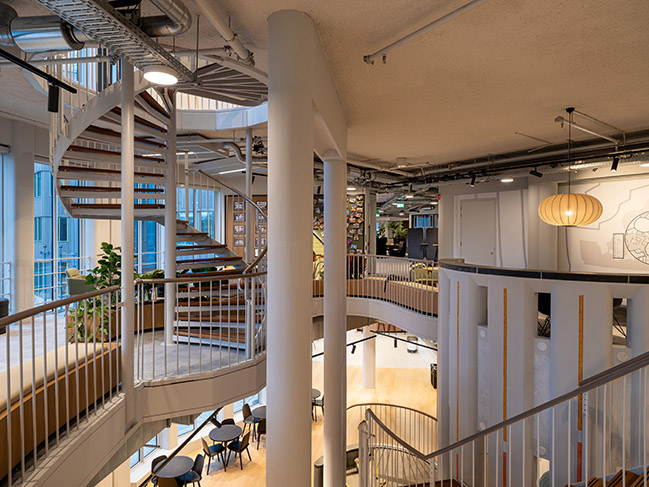
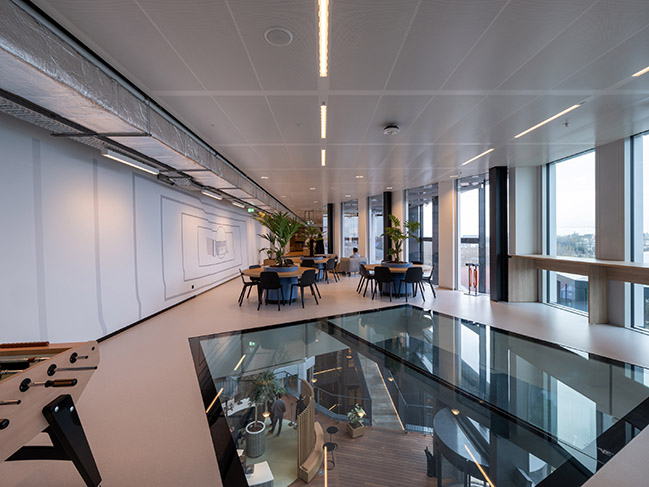
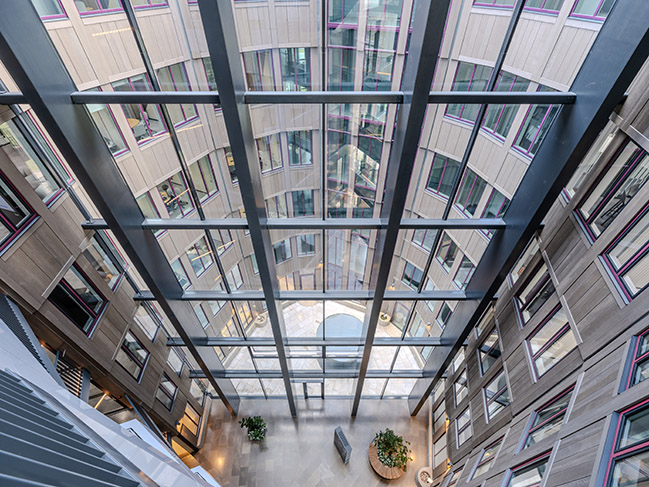
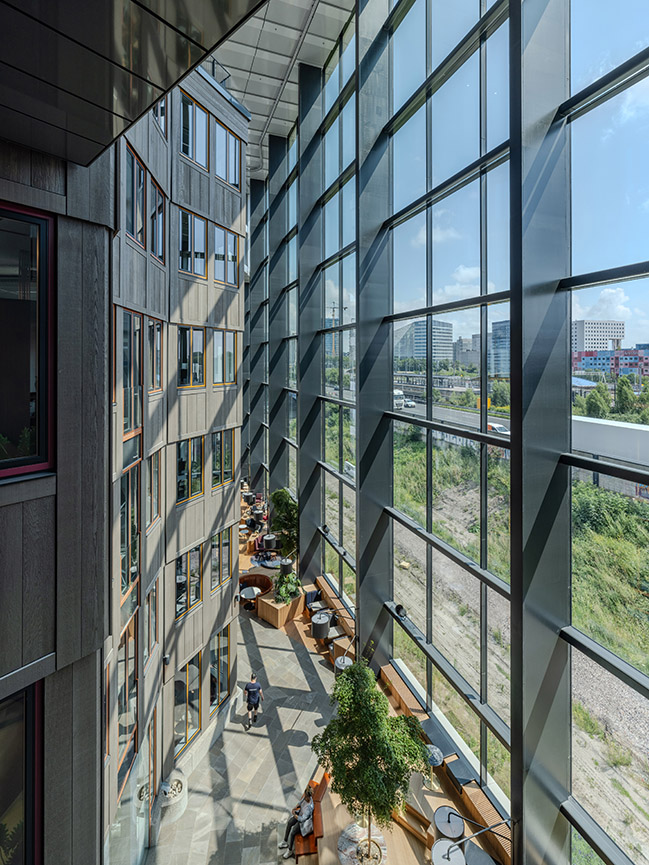
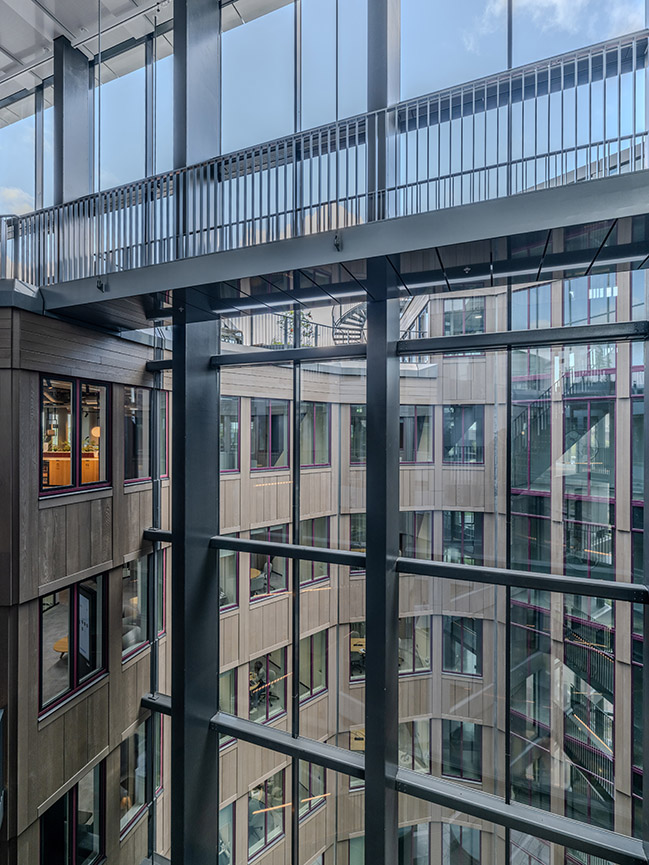
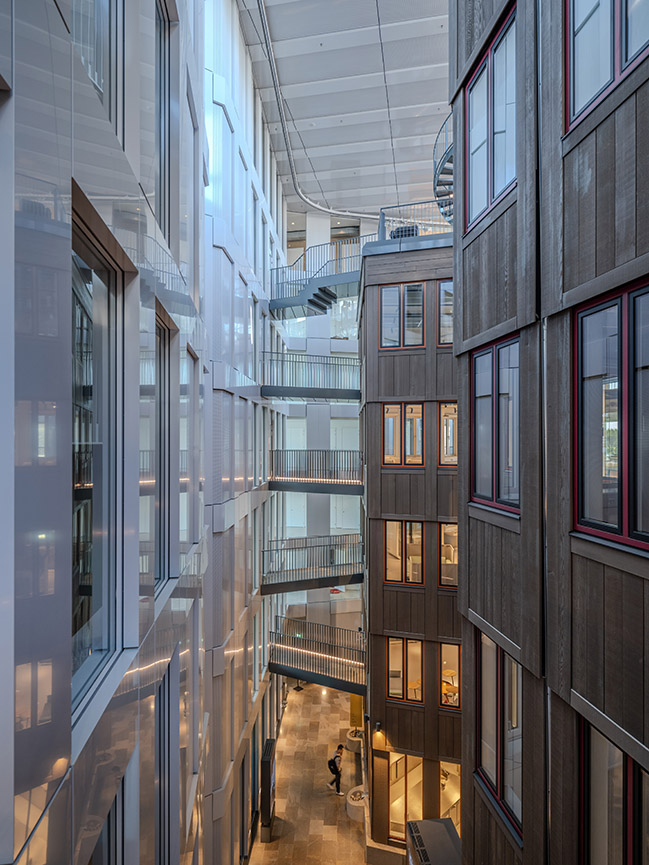
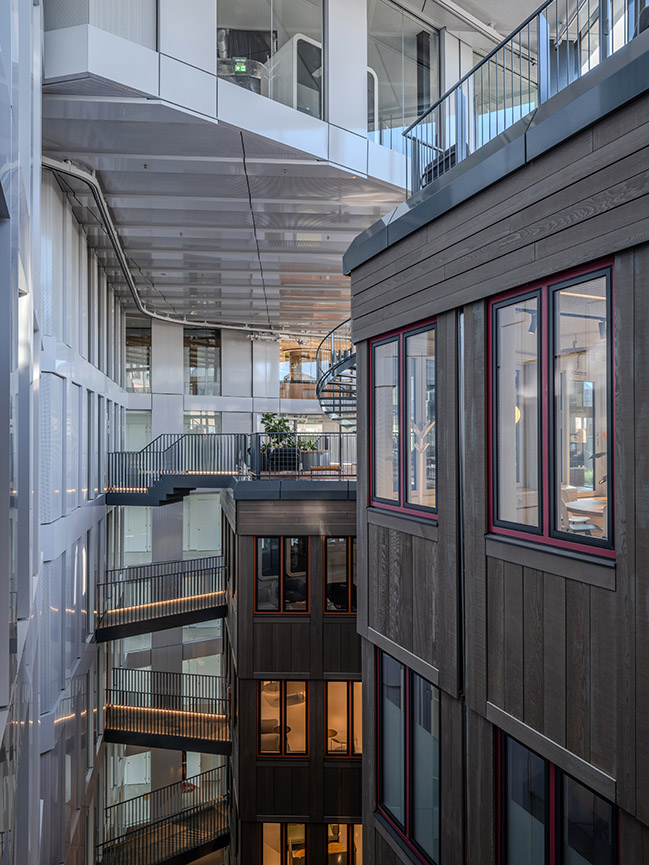
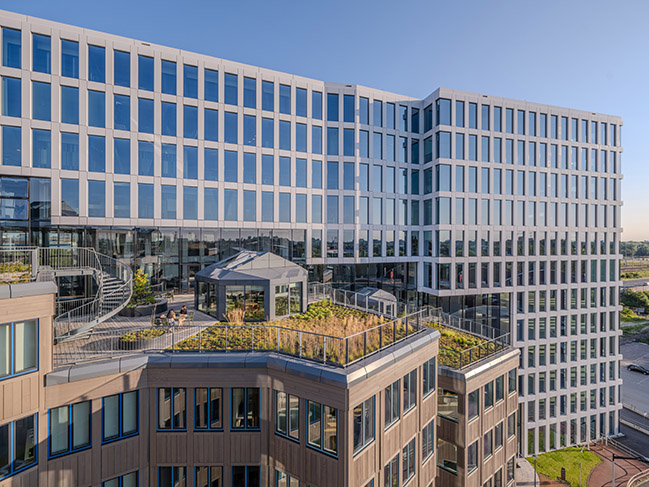
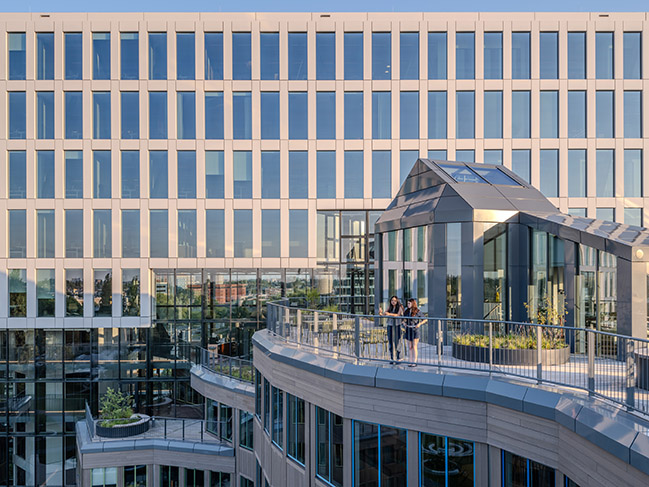
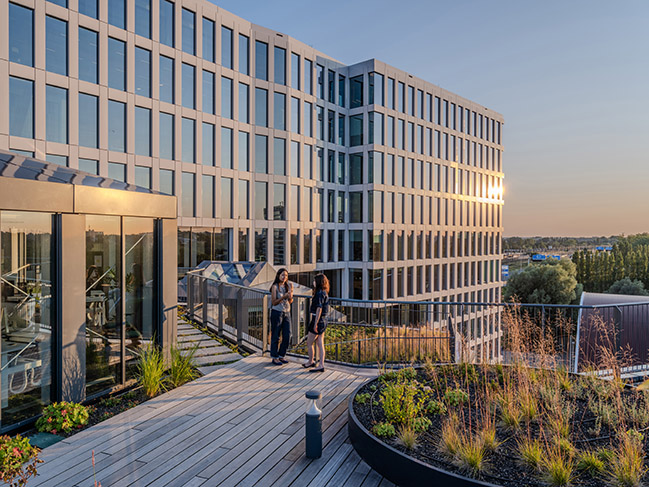
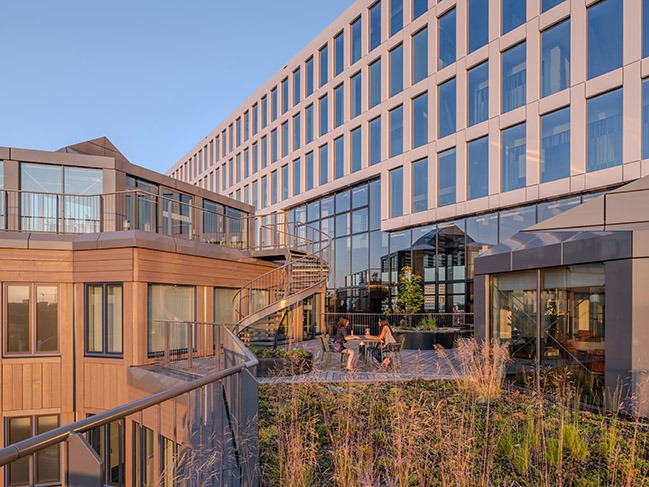
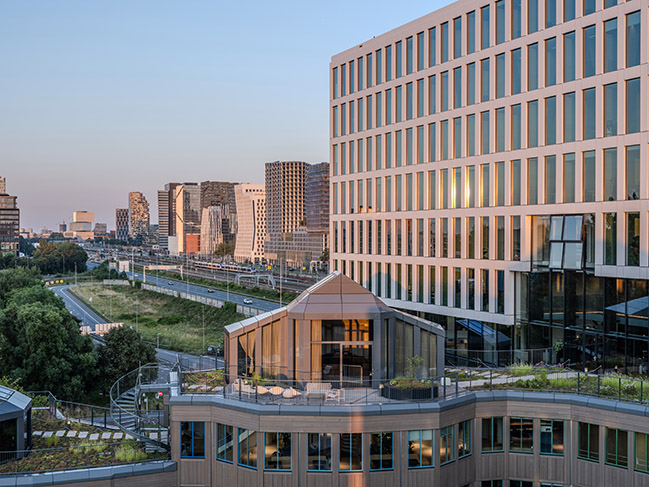
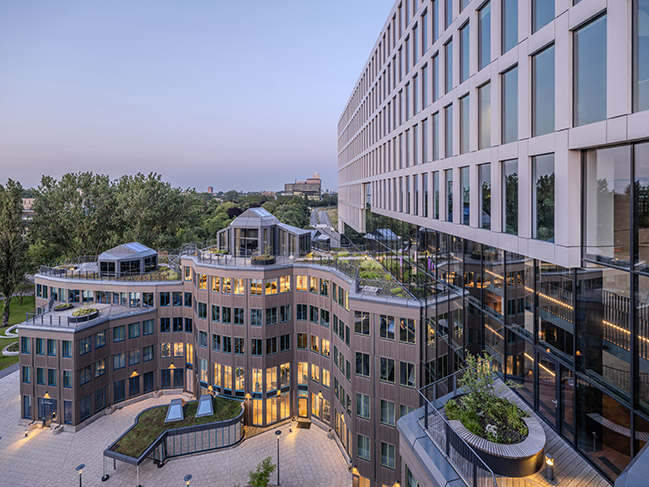
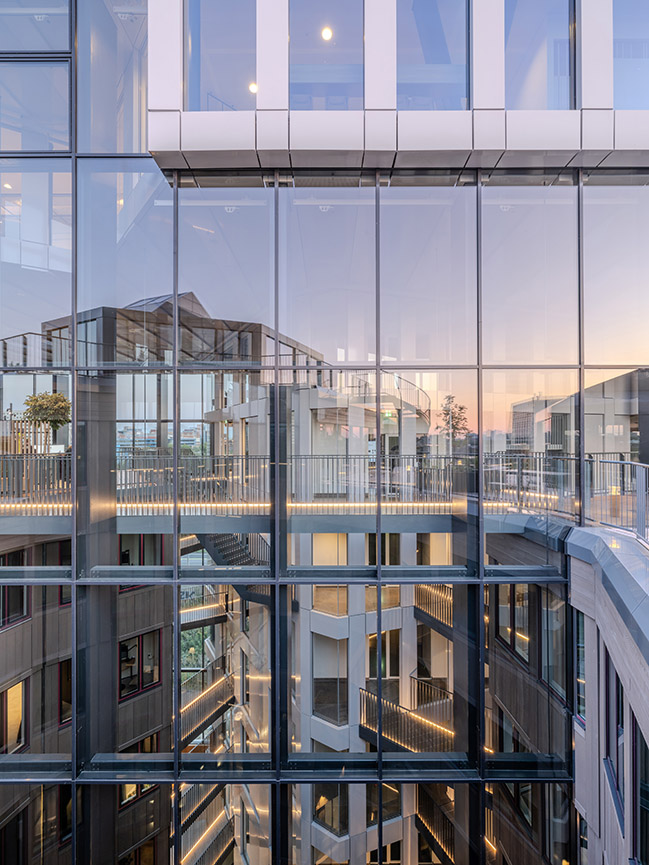
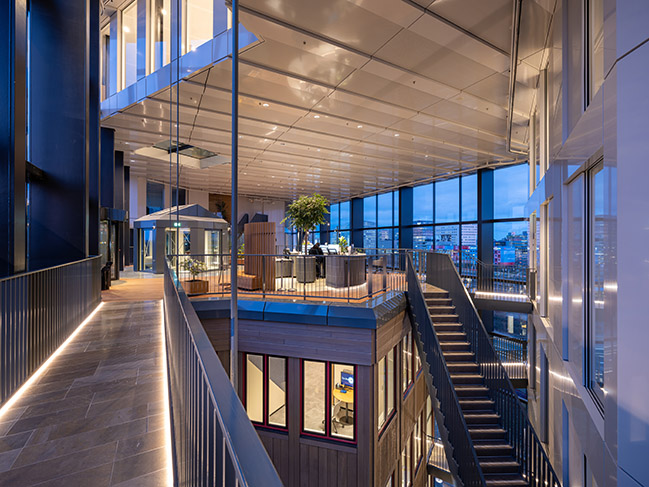
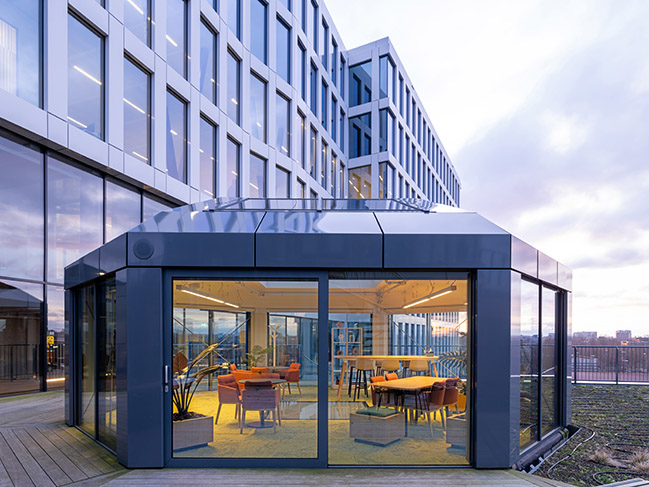
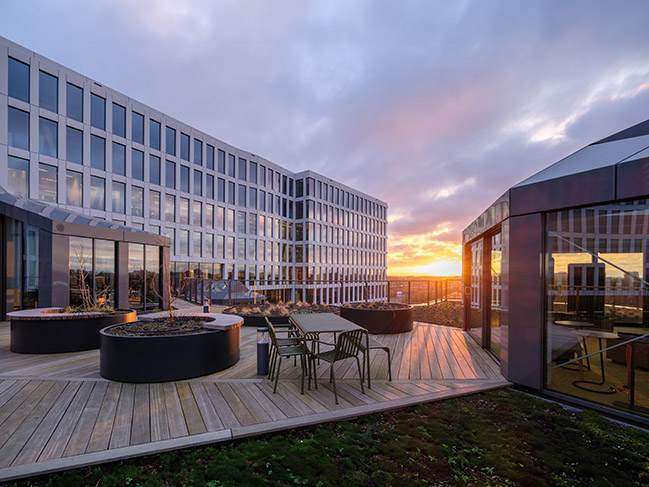
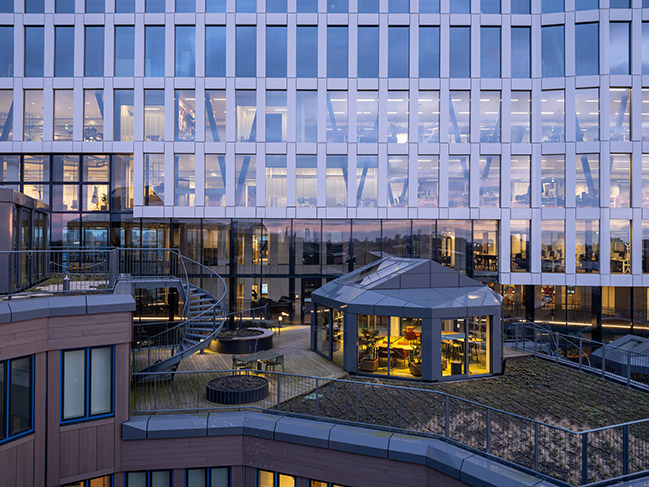
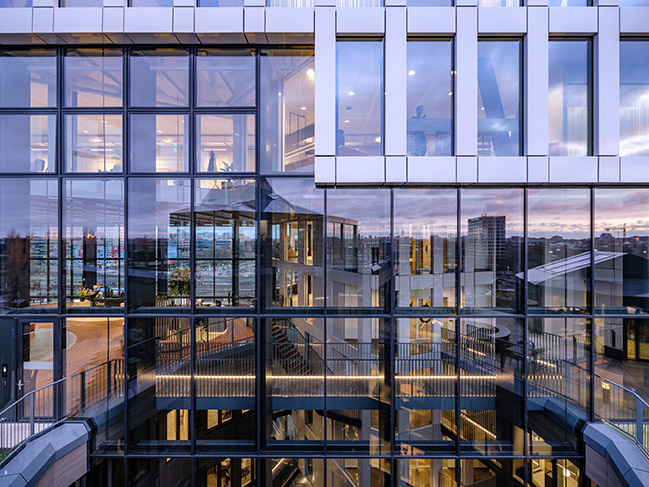
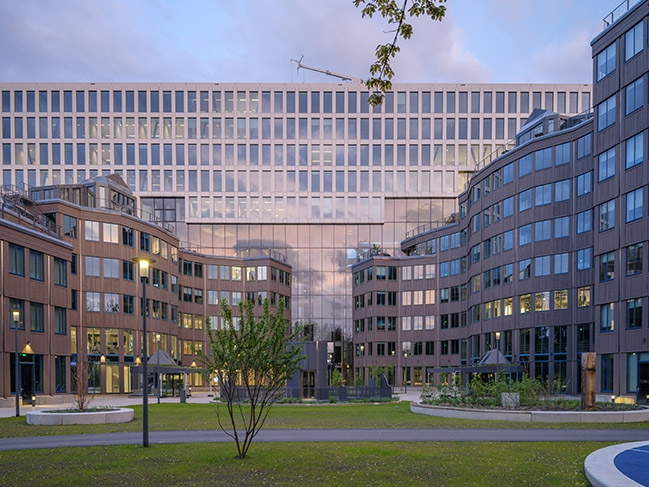
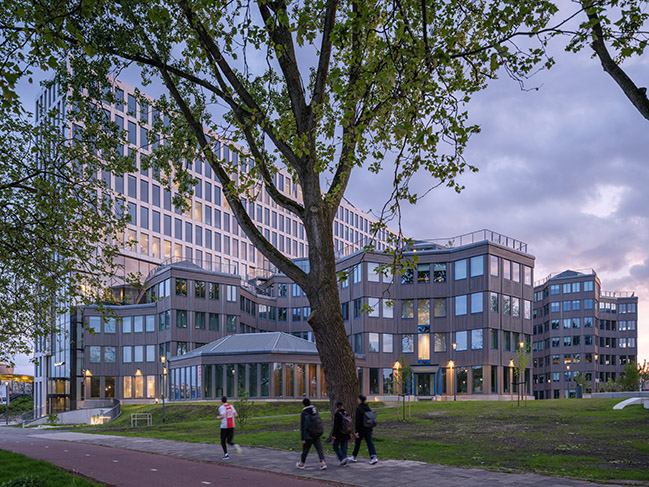
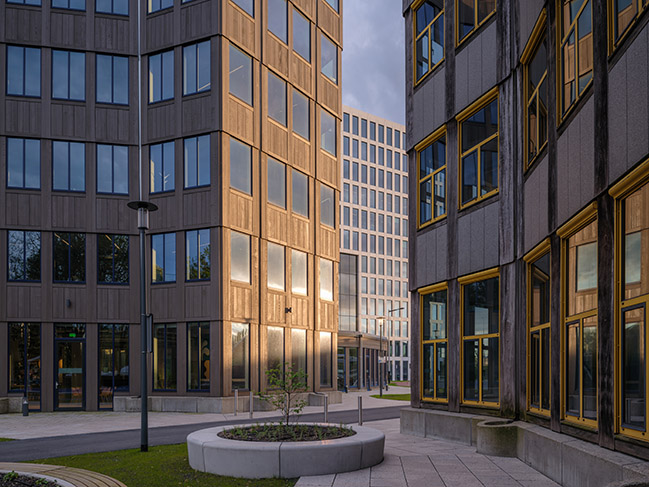
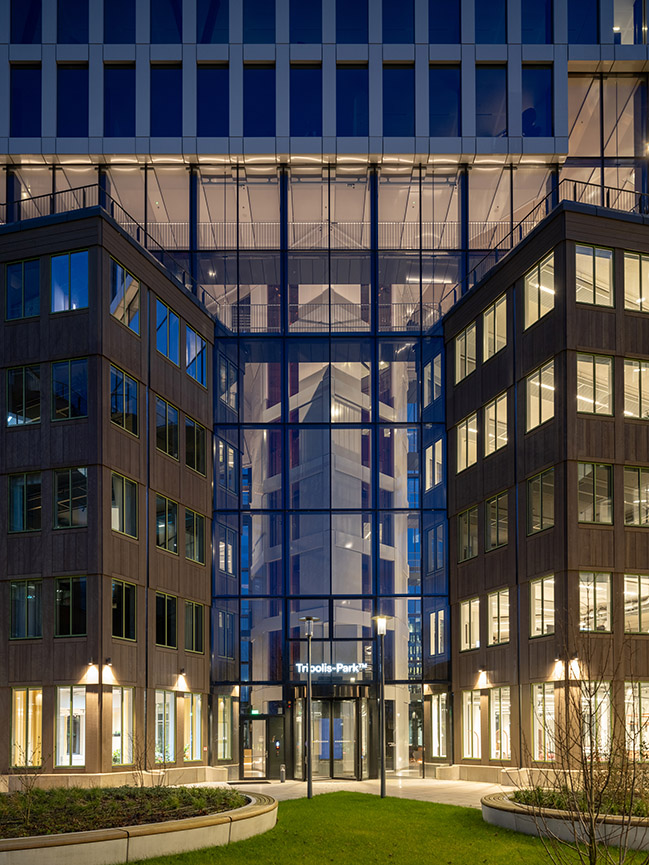
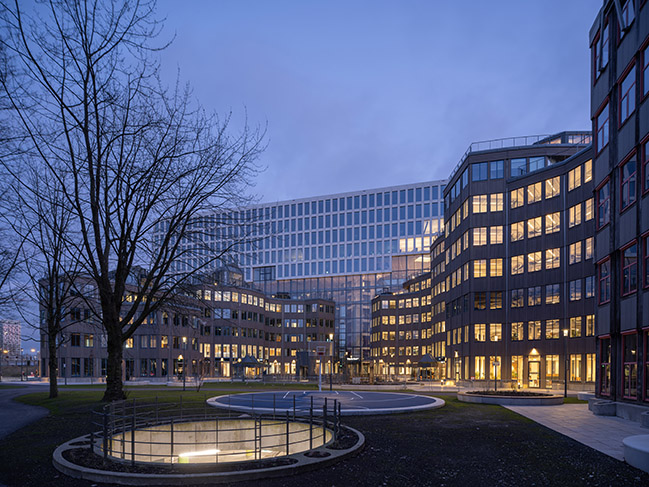
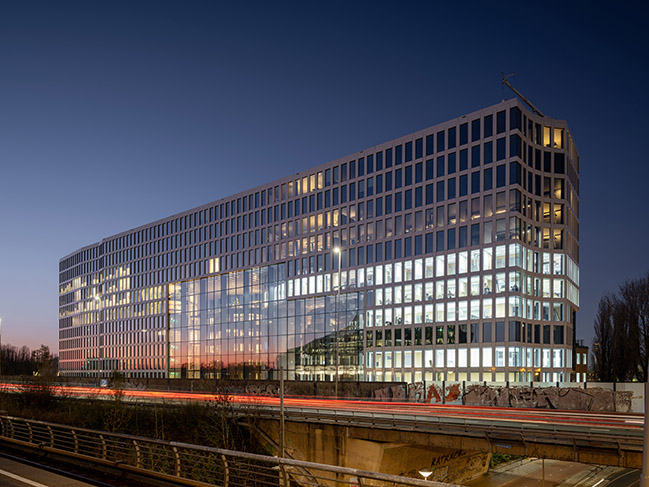
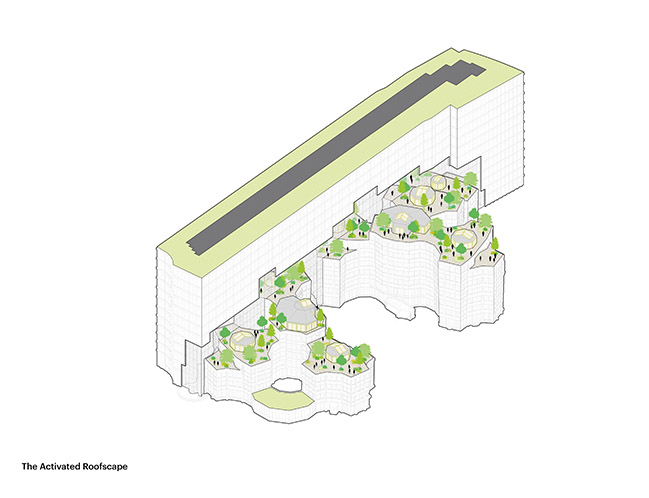
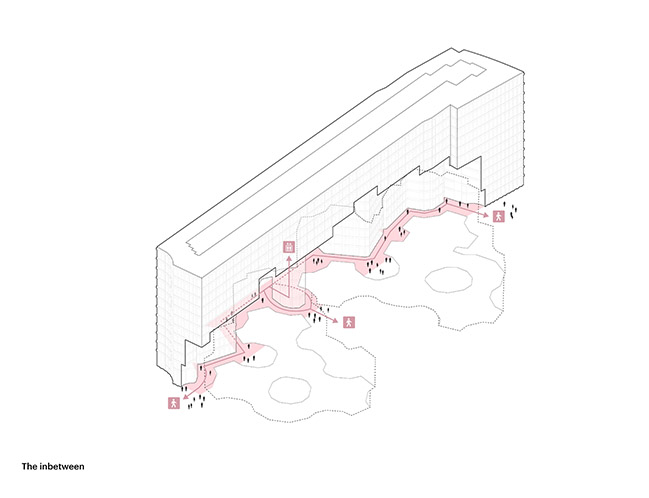
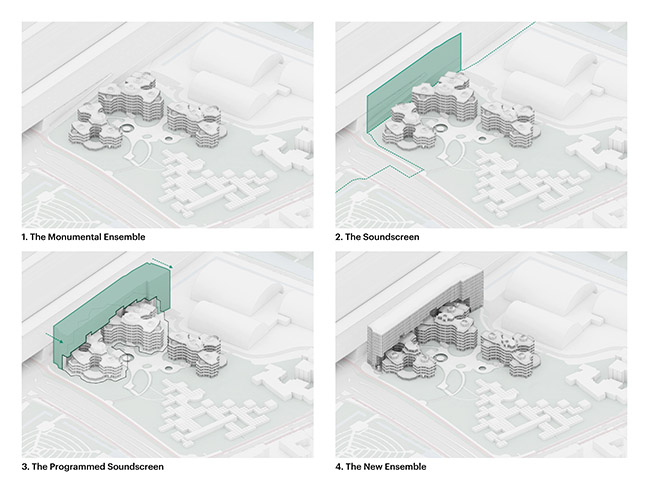
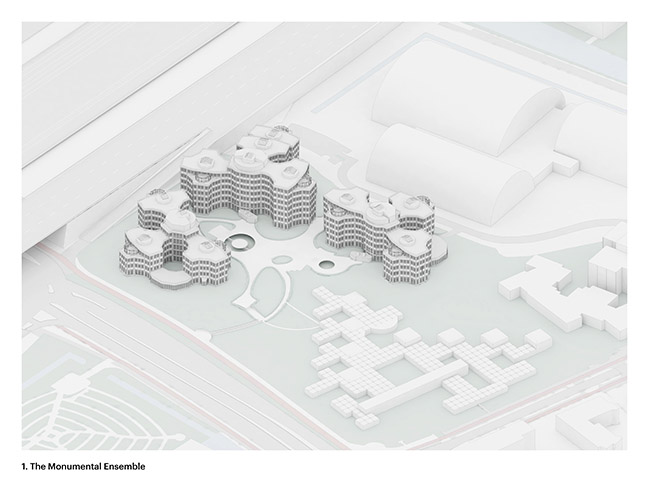
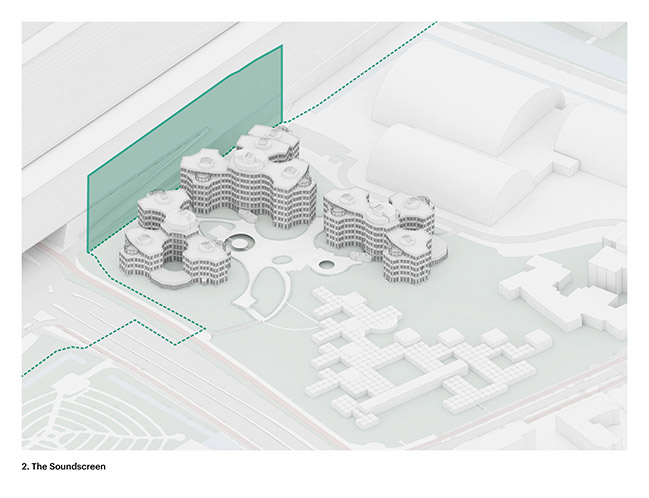
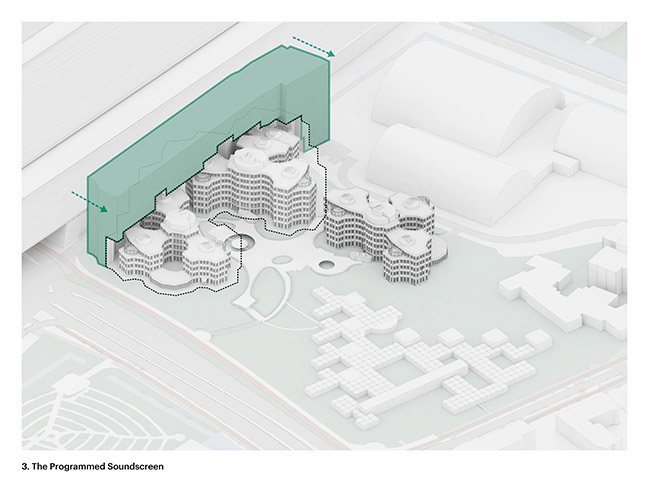
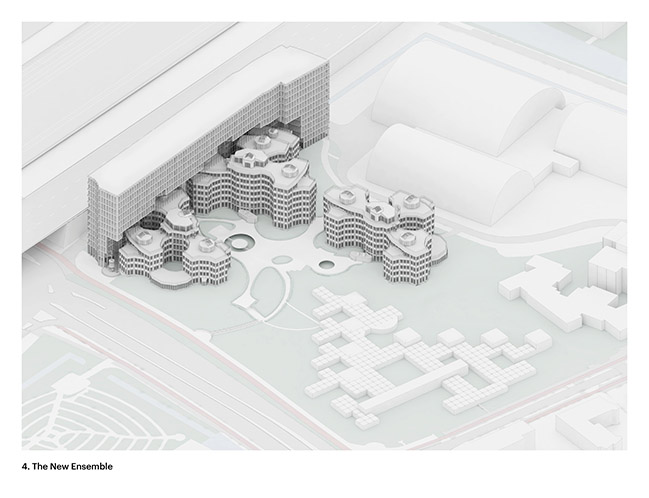
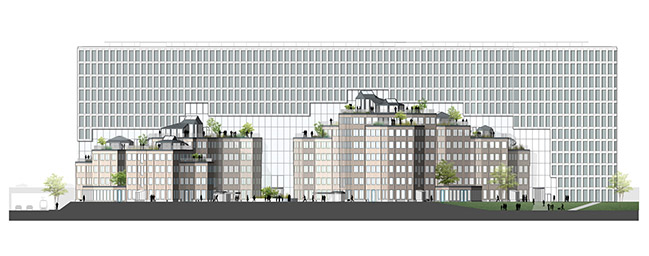
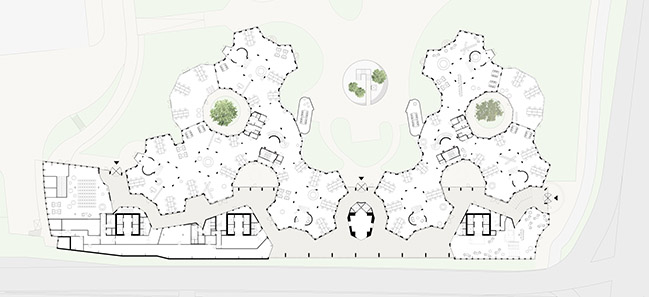
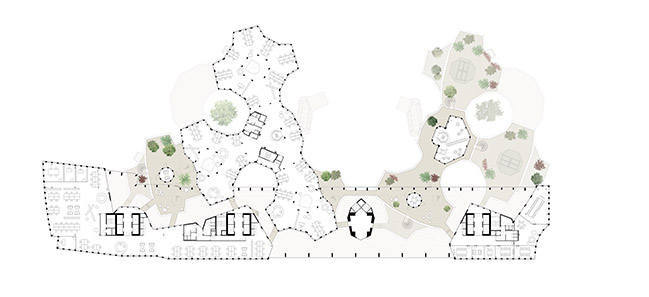
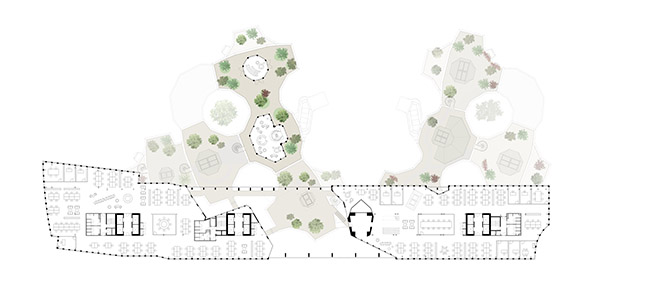
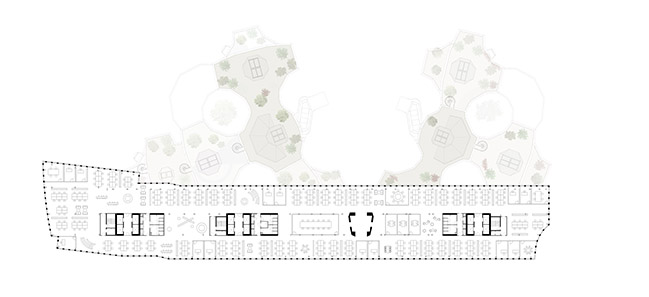
Tripolis Park by MVRDV is complete: Aldo van Eyck's final work renovated and protected by an office landscraper
10 / 18 / 2024 The new building is careful in its relationship with the heritage buildings, keeping a respectful distance so that an exciting in-between space emerges where the two meet, with bridges crossing overhead to connect old and new...
You might also like:
Recommended post: Canada tallest building by Foster + Partners
